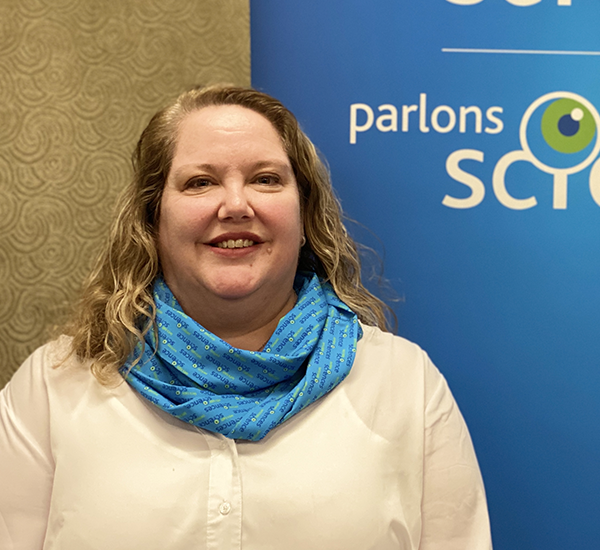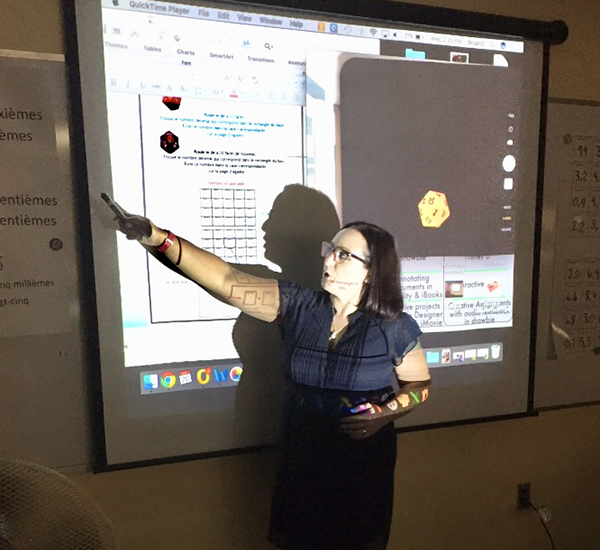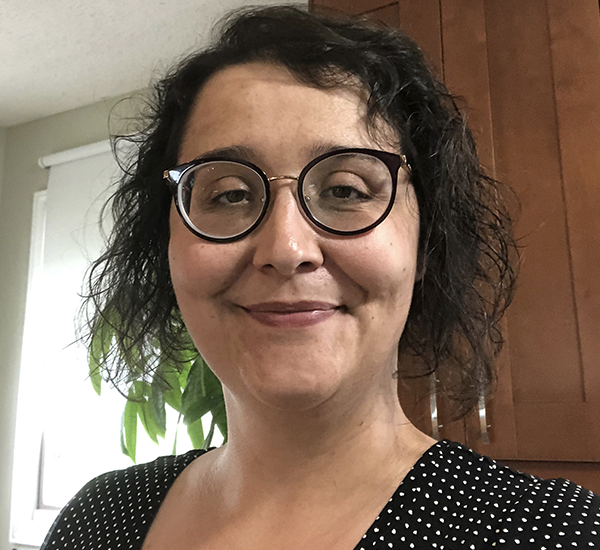Educators Get Inspired

“When they have a passionate teacher then students become passionate too. It is contagious,” said an educator from a virtual professional learning session.
No surprise. The best science education has a way of engaging anyone. In this case, Melanie McComb isn’t a student, but a teacher in Brandon, Manitoba. She’s among the educators who’ve used Let’s Talk Science resources in the classroom and participated in the organization’s professional learning.
McComb says her confidence in STEM has only increased. She’s now even more excited to share her ideas at school.
“I’ve thoroughly enjoyed my experience as a Teacher Leader with Let's Talk Science,” says McComb. “I enjoyed meeting – in person and virtually – like-minded people who are passionate about learning and teaching science and STEM to students and to other teachers.”
Teacher Leaders are individuals who share their experience and knowledge through facilitated sessions, within their local community of educators. Forty-one educators, including six from Indigenous schools, were named Let’s Talk Science Teacher Leaders and began training.
Teacher Leaders, like Melanie, and Let’s Talk Science facilitators support local educators across Canada with classroom and online learning. To help inspire teachers, Let’s Talk Science offers professional learning including webinars, self-paced learning, face-to-face training and live broadcasts. A blended approach better suits teacher preferences and schedules.
No matter the platform, the goal is to help teachers use STEM in meaningful ways. With the right tools and support, teachers can embrace strategies to help their students become active learners and creative, innovative and critical thinkers. Last year, Let’s Talk Science Professional Learning opportunities reached educators in more than 800 schools and more than 400 communities in all provinces and territories across Canada.
Transforming Educator Practice during COVID-19
While the global pandemic changed the learning landscape for teachers and students alike, Let’s Talk Science was evolving how it supported educators even before the pandemic.
In November 2019, Let’s Talk Science announced that it was entering into a partnership with global learning technology leader D2L to support STEM-based training for teachers and volunteers. Users can access content through Brightspace, a leading cloud-based learning management system. This makes access to learning modules even easier.

As COVID-19 accelerated so did Let’s Talk Science’s ability to offer robust, interactive training opportunities to educators.
In a very short time, nearly 1,000 educators completed numerous online training workshops and were enrolled in professional learning communities for sustained engagement.
When the pandemic hit, the Let’s Talk Science team also quickly shifted gears to provide a series of workshops on building digital skills and using technology effectively for students. As teachers were moving their own classes online, and adjusting to working in a virtual environment, the Let’s Talk Science training sessions proved to be a timely way to support student learning.
Almost all educators who participated said they were very likely to implement the resources and materials they learned, and more than one-third said that the sessions boosted their level of knowledge and confidence.
Building Educator’s Online Confidence

Overall, Let’s Talk Science training helps teachers to build the very thing they want to instill in their students: a sense of exploration.
“Being part of the Teacher Leader program at Let's Talk Science has given me the opportunity to learn new concepts, try new activities with my students and collaborate with teachers around the country,” says Stéphanie Gaudet, a teacher in Moose Jaw, Saskatchewan.
On the other side of the country, Celine Gallien, an education support teacher – STEM in Moncton, New Brunswick, says Let’s Talk Science training helps to focus on what matters to students.
“It has enriched my own teaching practice by providing tools and lessons that enhance student learning, and an inquiry-based and hands-on approach. This supports teachers on their journey to providing a more student-centred learning environment,” says Gallien.
